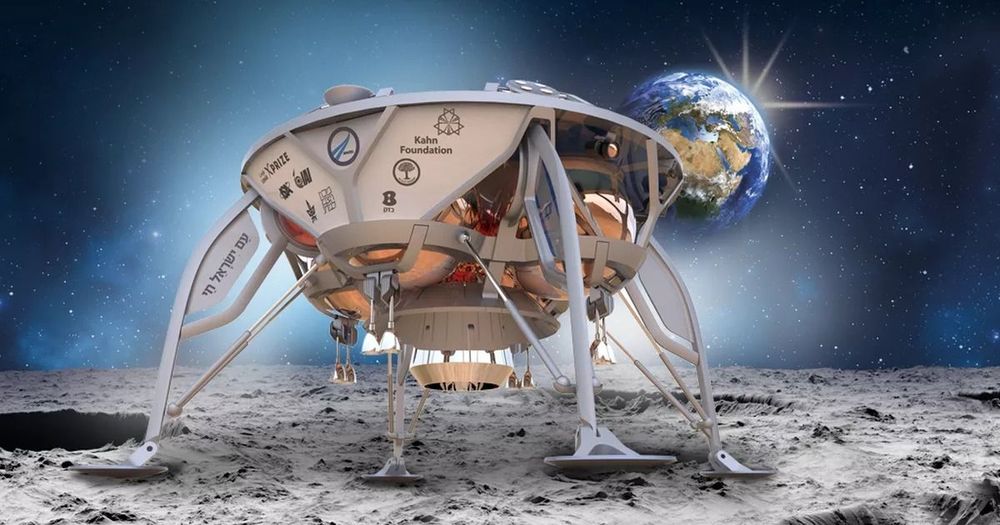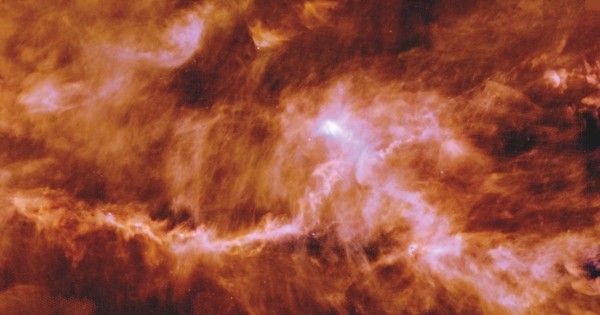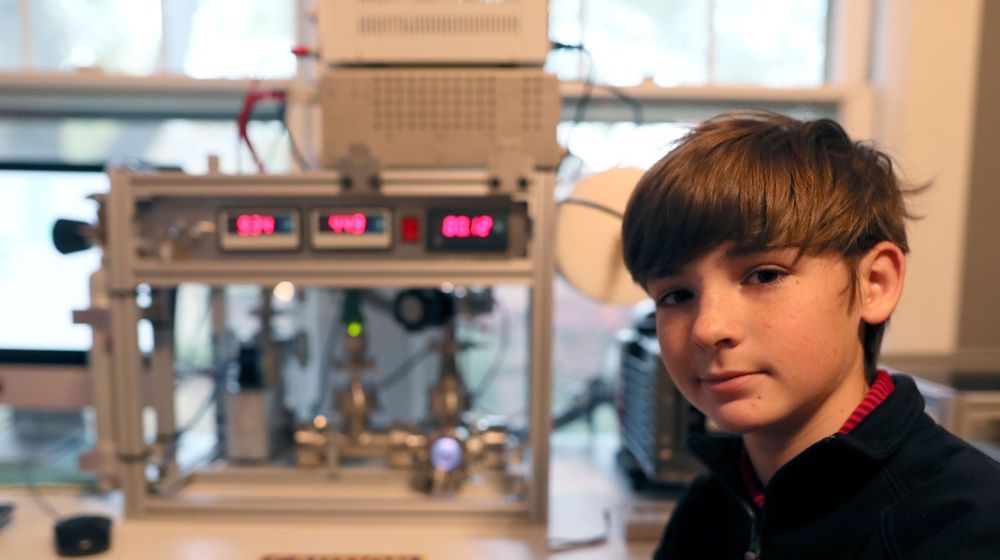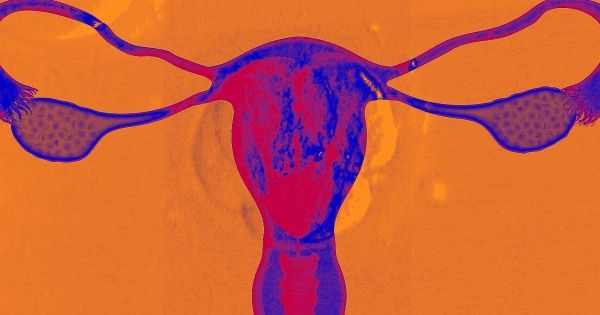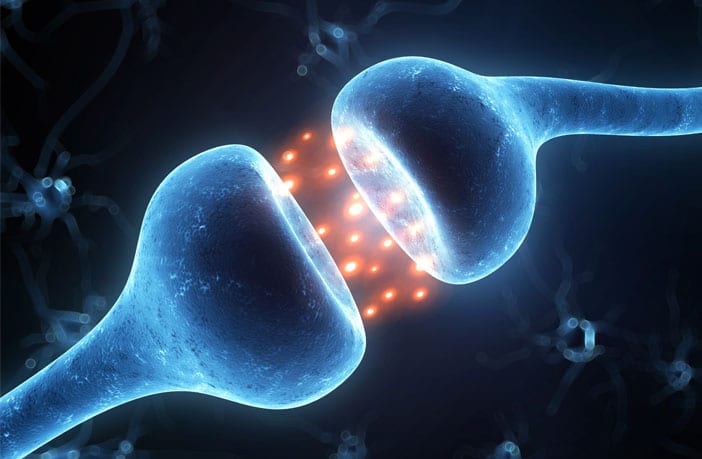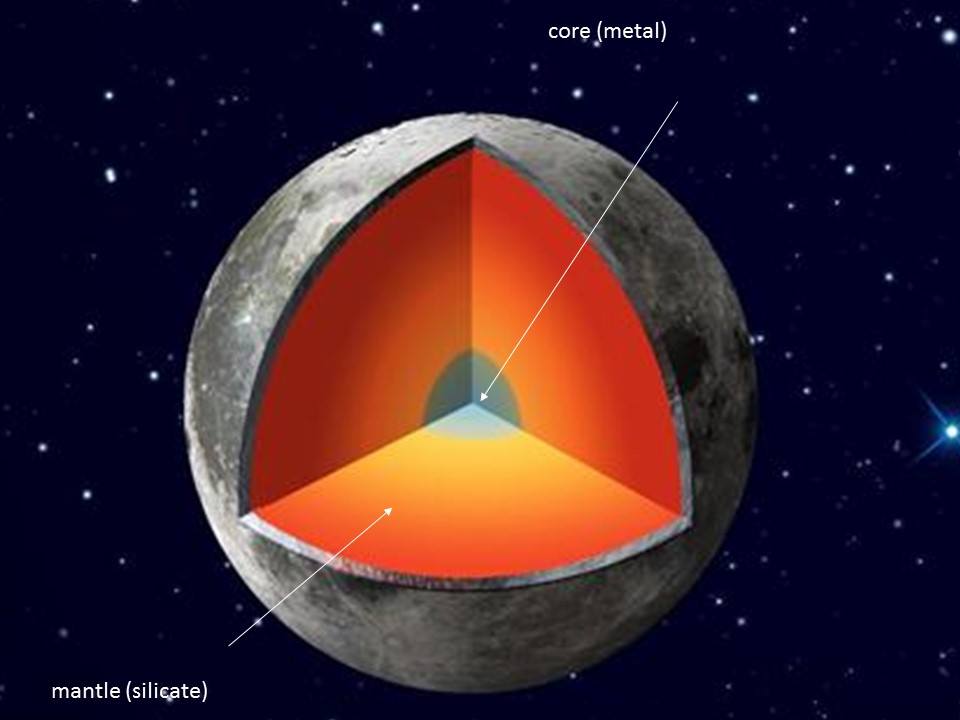Page 9134
Feb 2, 2019
Cluster of ‘super-Earths’ found hiding in dust
Posted by Genevieve Klien in category: space
Astronomers spotted gaps in the dusty discs around stars that can only be filled by planets.
Feb 2, 2019
Weathersbee: To build a nuclear reactor, the ‘nuclear kid’ had to become a welder first
Posted by Genevieve Klien in categories: education, nuclear energy
Jackson Oswalt, 14, built a nuclear reactor at his home. He may be a potent weapon for state Sen. Katrina Robinson’s push for middle school skills training.
Feb 2, 2019
“Sun in a Box”: A New Way to Store Renewable Energy for the Grid
Posted by Jeffrey L. Lee in categories: energy, sustainability
The new design stores heat generated by excess electricity from solar or wind power in large tanks of white-hot molten silicon, and then converts the light from the glowing metal back into electricity when it’s needed. The researchers estimate that such a system would be much more affordable than lithium-ion batteries, which have been proposed as a viable, though expensive, method to store renewable energy. They also estimate that the system would cost about half as much as pumped hydroelectric storage—the cheapest form of grid-scale energy storage so far.
Delivering solar- or wind-generated power on demand, the system, which uses molten silicon, should be cheaper than other leading options.
Feb 2, 2019
A Woman Gave Birth to a Healthy Child Using a Deceased Donor’s Uterus
Posted by Quinn Sena in category: biotech/medical
A baby unlike any other is about to celebrate her first birthday.
The reason she’s so unique: she was born from a uterus transplanted into her mother from a deceased donor.
Feb 2, 2019
A New Kind of Doctor’s Office
Posted by Mary Jain in categories: biotech/medical, genetics, privacy
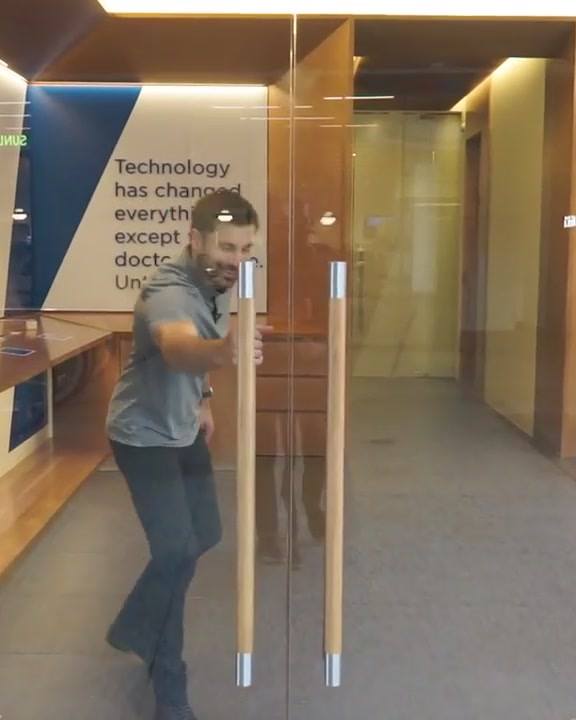
Hey New York, meet Forward. A new kind of doctor’s office with unlimited visits & no copays. Ever. Forward has two locations in NoMad & Midtown featuring unlimited access to world-class doctors, biometric body scans, genetic testing and so much more. Learn why The New Yorker called us “the doctor’s office of the future” → https://bit.ly/2sVXtfa
Feb 2, 2019
No Chemo, No Cancer: Trial Eradicates All Signs of Breast Tumors in Only 11 Days
Posted by Genevieve Klien in categories: biotech/medical, engineering, neuroscience
Despite unbelievable advances in medical science in recent decades, breast cancer kills. Approximately 1 in 8 American women will develop breast cancer cells during the course of their lifetime.
Finding a cure is imperative, and as such, fervent research continues. At the European Breast Cancer Conference in Amsterdam, scientists presented a pair of drugs with an astounding claim: this treatment can eradicate some types of breast cancer in only 11 days, eliminating the need for chemotherapy.
Chemotherapy, whilst an amazing feat of medical-scientific engineering, is known for its uncomfortable and sometimes debilitating side effects. Women undergoing chemotherapy for breast cancer treatment may lose their hair, suffer extreme fatigue, and even loss of cognitive function.
Feb 2, 2019
Listening to the music you love will make your brain release more dopamine, study finds
Posted by Genevieve Klien in categories: media & arts, neuroscience
A new study has found that dopamine — a neurotransmitter that plays an important role in our cognitive, emotional, and behavioral functioning — plays a direct role in the reward experience induced by music. The new findings have been published in the Proceedings of the National Academy of Sciences.
“In everyday life, humans regularly seek participation in highly complex and pleasurable experiences such as music listening, singing, or playing, that do not seem to have any specific survival advantage. Understanding how the brain translates a structured sequence of sounds, such as music, into a pleasant and rewarding experience is thus a challenging and fascinating question,” said study author Laura Ferreri, an associate professor in cognitive psychology at Lyon University.
“In the scientific literature, there was a lack of direct evidence showing that dopamine function is causally related to music-evoked pleasure. Therefore in this study, through a pharmacological approach, we wanted to investigate whether dopamine, which plays a major role in regulating pleasure experiences and motivation to engage in certain behaviors, plays a direct role in the experience of pleasure induced by music.”
Feb 2, 2019
AHS18 Michael Rose — Evolutionary Biology of Diet, Aging, and Mismatch
Posted by Paul Battista in categories: biological, evolution, life extension, mathematics
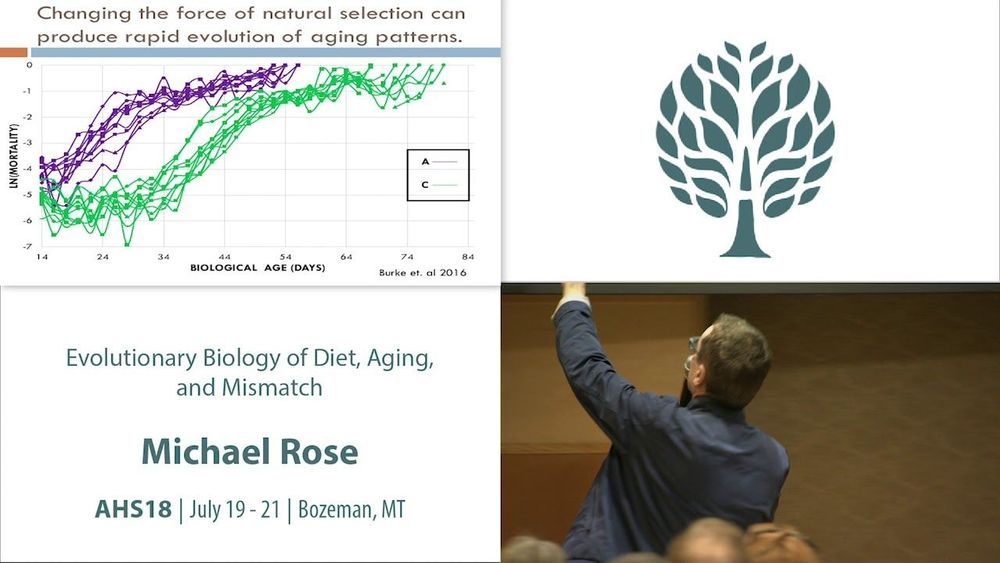
Human health depends on age and evolutionary history. Firstly, adaptation is age-specific, with Hamilton’s forces of natural selection leading to much greater adaptation at earlier ages than later ages. This of course is how evolutionary biologists explain the existence of aging in the first place. Secondly, when environmental conditions change, it takes surprisingly few generations for populations to adapt to such new conditions, at least at early ages when natural selection is intense. Thirdly, at later ages, when the forces of natural selection are weak, natural selection will often fail to produce adaptation to a selective environment that is not evolutionarily ancient. All three of these themes will be illustrated using both explicit mathematical theory and findings from experimental evolution. At the end of the presentation, we will apply these general scientific insights to the case of human evolutionary history, human aging, and optimal human diets.
Feb 2, 2019
The Moon might actually be made out of the same material as our home planet
Posted by Michael Lance in categories: materials, space
Samples collected nearly 50 years ago during Apollo, combined with experimental studies that mirror the conditions inside planetary bodies provide compelling evidence.
